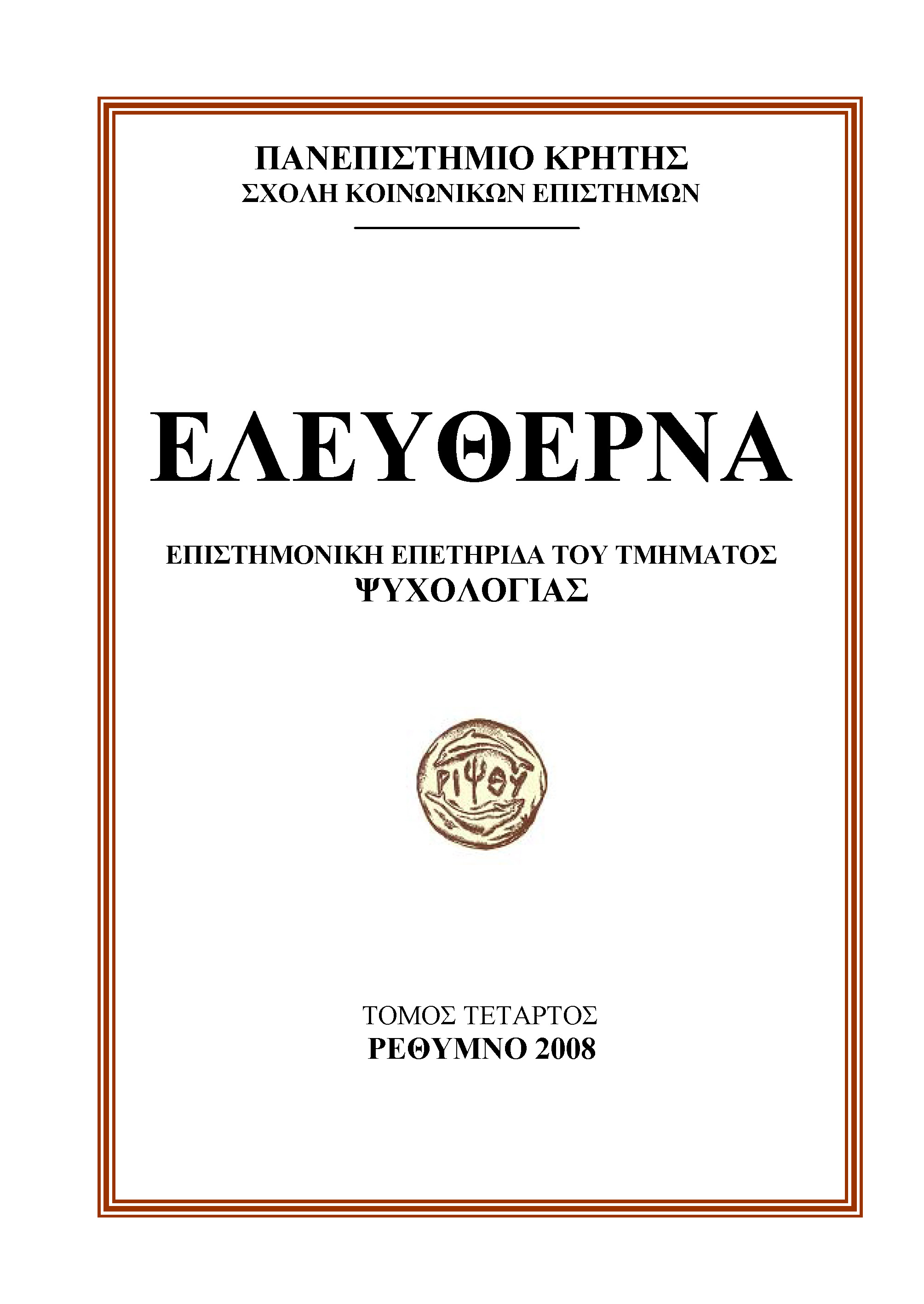Color Trails Test: Preliminary Normative Data and Discriminative Validity in the Greek Population
DOI:
https://doi.org/10.26248/eleutherna.v4i0.132Keywords:
Attention, Executive, Functions, Neuropsychological test, Norms, Discriminant ValidityAbstract
The Color Trails Test (CTT; D’Elia., Satz, Uchiyama, & White, 1996) was developed as a culturally fair analogue of the Trail Making Test (TMT; Armitage, 1946). In this study, we developed normative data for the CTT for the Greek adult population and examined the discriminative validity of the test in two clinical groups (29 patients diagnosed with Parkinson’s disease and 25 acute stroke patients). We administered the test to 163 healthy participants, aged 19-75 years. Stepwise linear regression analyses revealed a significant influence of age and education level on completion time in both parts A and B of the CTT (increased age and decreased educational level contributed to slower completion times for both parts), whereas sex did not influence time to completion of part B. The CTT appears to discriminate adequately between the performance (time to completion) of Parkinson’s disease and acute stroke patients and matched (sex, age, and education) healthy controls. The present study provides much needed performance data for a culture fair neuropsychological measure in the adult population in Greece, however, we suggest the development of norms for this measure with larger samples in the future, and the collection of normative data for the elderly population (over 75 years old).
Downloads
Published
How to Cite
Issue
Section
License
This work is licensed under a Creative Commons License Attribution-NonCommercial-ShareAlike 4.0 International (CC BY-NC-SA 4.0).
Under this license EJPBS provides immediate open access to its content on the principle that making research freely available to the public supports a greater global exchange of knowledge.


